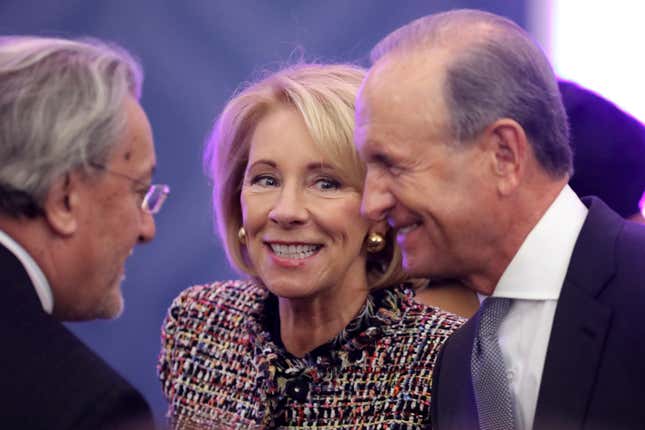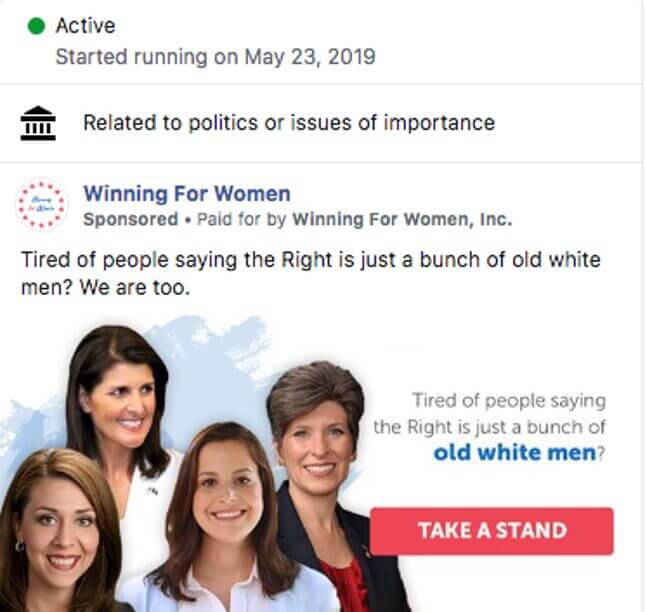The Republican Answer to EMILY's List Is Looking for a Few Good Women—Who Hate Taxes and Love Endless War
NewsPolitics

Winning for Women wants women to run for office, but not because they’re women. The nonprofit and political PAC was formed in 2017 by prominent Republican donors to help elect women on the “center-right and the right” who are fatigued by identity politics but still feel they aren’t “necessarily represented” in politics, according to the organization. This puts Winning for Women in the uncomfortable situation of being against the particular thing it was founded to do.
A Republican analog to the decades-old EMILY’s List, Winning for Women leverages its connections and bundles donations for the conservative women candidates it deems most worthy in a given race—or simply most capable of winning. “Tired of people saying the Right is a bunch of old white men?” one recent Facebook ad reads. “We are too.”

Early supporters included Betsy DeVos and Linda McMahon, the former WWE executive turned Trump Small Business appointee who now chairs a pro-Trump super PAC. Kelly Ayotte, the former conservative senator and district attorney of New Hampshire, also has a prominent role. Between 2017 and 2018, some of its largest individual donors were Frank Baxter, George W. Bush’s ambassador to Uruguay; “vulture capitalist” and hedge fund manager Paul E. Singer; and the philanthropist wives of banker Charles Schwab and billionaire conservative Joe Ricketts.
-

-

-

-

-

-

-

-

-

-

-

-

-

-

-

-

-

-

-

-

-

-

-

-

-

-

-

-

-

-

-

-

-

-

-

-

-

-

-

-








































